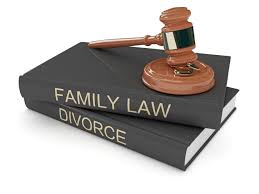
Family Law Valuations
Whilst valuing property in a Family Law case is mostly straightforward, Business Valuation for the Family Court can be anything but.
There are three generally accepted approaches to valuations. These are the income approach, the asset based approach and the market approach. Within each approach are the methods used to estimate value. The approaches and methods used may or may not be applicable to a particular valuation. Sometimes the valuation will dictate the approach and method. When dealing with Family Law Valuations, the value to owner approach is sometimes the appropriate method to use.
Income approach
The theory of the income approach is that the value of the business is the present value of the future economic benefits (income stream) it’s expected to provide. The economic benefits can be determined from historical results or future projections. When using the discounted future cash flow method, forecasts are typically prepared for five years and then these economic benefits are converted to the present value using a discount rate. The discount rate is a rate of return required by an investor for the risk involved.
Asset based approach
The asset-based approach utilises the Company’s adjusted balance sheet as the primary focus of fair market value. This approach is important where the fair market value of a company’s assets is significantly greater than its book value. The asset-based approach may be considered when valuing a controlling interest with significantly appreciated assets such as real estate.
The market approach
The market approach draws comparisons to publicly traded companies or private companies that are similar to the subject company. The market approach uses empirical evidence of value using databases for private businesses and companies. A major disadvantage with the market method is that it ends up comparing general information in the market, it is unable to consider specific factors leading to a specific transaction.
Value to Owner
The term valuation is understood in predominately two ways, being the positivist 'market valuation' and the normative 'value to owner'. Both have inherited several titles such as exchange value, sale price or market value for the former and realistic value, just price, cost of reproduction, fair market value for the latter.
The value to the owner concept provides an important distinction in Family Law where the ownership of a business and the associated benefits are likely to continue. The concept of “value to the owner” is not exclusive of the “fair market value” definition and commonly accepted business valuation methodologies.
Nor is the concept of 'value to owner' new.
Bonbright (1937) argues that
'....it would seem to follow that the value of property should always be taken to
mean value to some specific individual, or group of individuals, who have or may
have an ownership interest in the thing'(pp15,16)
In Turnbull v Turnbull (1991) the appeal Court stated:
'It is not appropriate in the context of Family Law proceedings to value shares in private family companies on the basis of what a hypothetical purchase may pay for them. Similarly it is quite inappropriate to adopt the approach taken in the revenue and resumption cases.I am satisfied therefore in the context of proceedings under the Family Law Act that when a judge is determining the value of shares held by a party in a family company, he must look at the reality of the situation and value the shares on the basis of their worth to the shareholder. Turning to the facts of the present case, the husband's shares can only be valued, in my view, on the basis of their worth to the husband in the context of the Turnbull family as a whole.'
In business valuations using the Future Maintainable Earnings methodology, we are determining the value of an income stream. The methodology determines the value of the business and not the price at which it may change hands. The methodology makes no assumptions as to the price on sale. It represents the present value of the future income flows from the business. Value and price are often not the same, as price may reflect other benefits that ownership of the business may confer such as synergies with existing businesses, a job, the desire to be self employed, lifestyle decisions etc.
The principle of value to the owner has been well explained in Scott & Scott (2006) FamCA 1379 at 45:
After noting her own responsibility to determine the value of the husband’s interest on the whole of the material before the Court, including the divergent expert opinion, her Honour moved to consideration of each respective valuation methodology (at paragraph 42):
The concept of “value to owner” considers and takes into account the benefits to a particular owner even though this may not be based on a hypothetical third party purchaser.
References:
Bonbright,J.C. The Valuation of Property, Charlottesville. The Michie Company
Scott & Scott (2006) FamCA 1379
Turnbull v Turnbull, 1991, FLC 92 258
Ready to find out more?
Contact us for a Family Law Valuation
